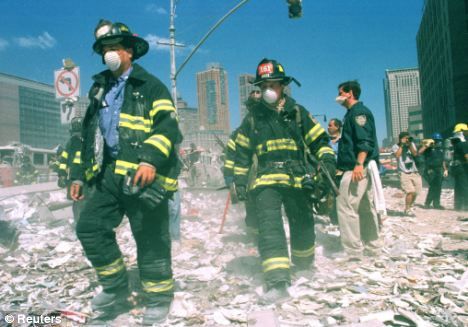Article
Cancer Risk Increased in September 11 Firefighters
Author(s):
Study results find a rise in cancer rates in those who worked at ground-zero following the attack on 9/11.

The attack on the World Trade Center on September 11, 2001 were not only devastating to the entire US, but to the health of the brave rescue workers who searched for and aided survivors in the aftermath of the attacks as well.
In a recent study focusing on approximately 10,000 NYC firefighters, the authors found a rise in cancer rates in those who worked at ground-zero following the attack. The researchers believe that the toxic, chemical and smoke-filled air from the attack inhaled by the firefighters exposed them to known and suspected carcinogens.
David Prezant, MD, professor of medicine at Albert Einstein College of Medicine, CEO of the New York City Fire Department, and colleagues assessed the rate of cancer in firefighters with health information before 9/11 and its possible connection to exposure within the seven years after the event.
For this study, 9,853 male firefighters were evaluated and classified into two groups: WTC exposed (8,927 firefighters) and non-WTC exposed (926 firefighters). The confirmation of non-WTC exposed cancer incidents were done by matching through state tumor registries or appropriate documentation. In order to determine the ratio of cancer rates in WTC exposed firefighters to non-exposed firefighters, adjusting based on age, race, ethnic origin, and secular trends, the researchers pulled data from the US National Cancer Institute Surveillance Epidemiology and End Results (SEER) reference population.
Upon reviewing the data, the study authors learned that in comparison to the general population of males in America with similar demographics, the incidence ratios of the cancer in WTC-exposed firefighters showed a “modest excess” of cancer cases. However, they are wary of the interpretation because the timeframe between 9/11 and now may be too short for cancer outcomes; the reported excess of cancers, which preceded this study were not very specific regarding anatomy.
“As in any observational study, we cannot rule out the possibility that effects in the exposed group might be due to unidentified confounders,” reported the authors. “Continued follow-up will be important and should include cancer screening and prevention strategies.”
The article, entitled “Early assessment of cancer outcomes in New York City firefighters after the 9/11 attacks: an observational cohort study,” was published in The Lancet, and was funded by the National Institute for Occupational Safety and Health.




